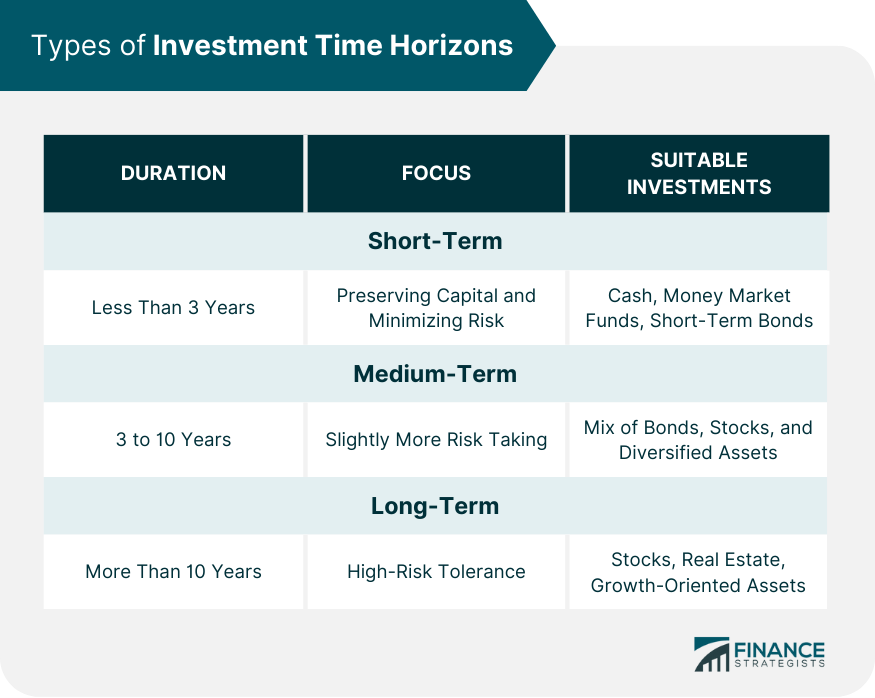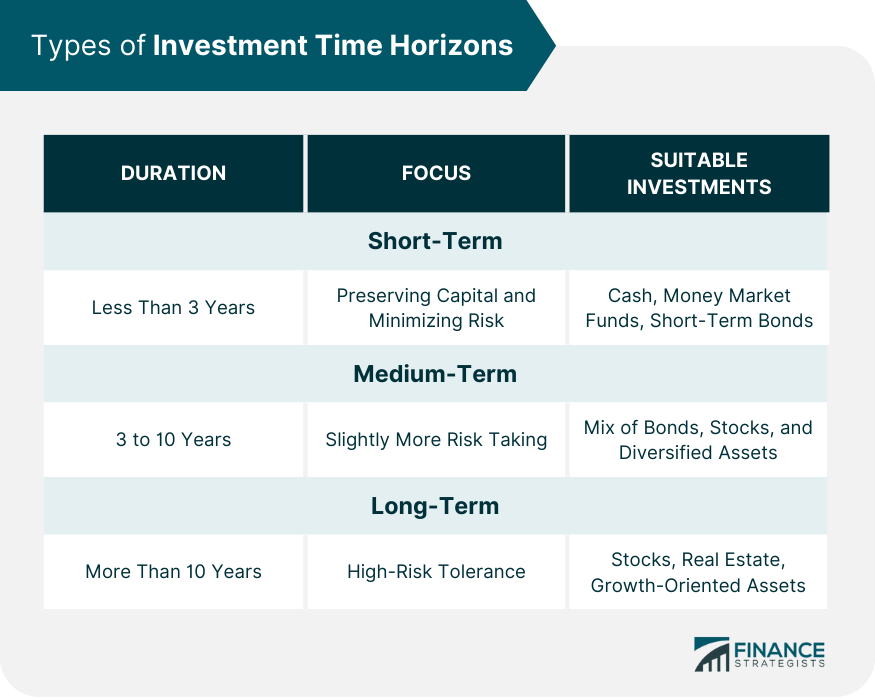
Unlocking Wealth: The Undeniable Importance of a Long-Term Investment Horizon
Investing can often feel like a complex maze, filled with jargon, volatile markets, and an endless stream of advice. Many beginners are tempted by the allure of quick gains, trying to "time the market" or jump on the latest hot trend. However, seasoned investors and financial experts consistently preach one fundamental truth: the real secret to building substantial wealth isn’t about speed, but about patience and perspective. It’s about embracing a long-term investment horizon.
In this comprehensive guide, we’ll break down why a long-term approach is not just a good idea, but an essential cornerstone of successful investing, especially for those just starting out.
What Exactly is a Long-Term Investment Horizon?
At its core, a "long-term investment horizon" simply means you are investing money with the expectation that you won’t need to touch it for many years – typically 5, 10, 20 years, or even more. It’s the opposite of short-term trading, where people buy and sell assets within days, weeks, or months, hoping to profit from small price fluctuations.
Think of it like planting a tree. You don’t expect to see a full-grown, fruit-bearing tree tomorrow. You plant a sapling, water it, nurture it, and understand that it will take years of consistent care for it to mature and provide its full benefits. Your investments are no different.
1. The Magic of Compounding: Your Wealth Accelerator
If there’s one concept that truly embodies the power of long-term investing, it’s compound interest. Often called the "eighth wonder of the world" by Albert Einstein, compounding is the process where your initial investment earns returns, and then those returns themselves start earning returns. It’s like a snowball rolling down a hill, gathering more snow (and momentum) as it goes.
How it Works (Simple Example):
- Year 1: You invest $1,000, and it earns 10% ($100). You now have $1,100.
- Year 2: Your $1,100 earns 10% ($110). You now have $1,210.
- Year 3: Your $1,210 earns 10% ($121). You now have $1,331.
Notice how the amount of interest earned grows each year, even though the interest rate remains the same? That’s because you’re earning interest not just on your original $1,000, but also on the $100 you earned in Year 1, and the $110 you earned in Year 2, and so on. The longer your money is invested, the more time it has to compound, leading to exponential growth.
Key Takeaway: Time is the fuel for compounding. The more time you give your investments, the more significant the compounding effect becomes, turning modest contributions into substantial wealth.
2. Taming the Beast: Navigating Market Volatility
One of the biggest fears for new investors is market volatility – the seemingly unpredictable ups and downs of stock prices. A quick look at the news can make it seem like the market is constantly crashing or soaring. While short-term fluctuations are a reality of investing, a long-term perspective helps you weather these storms.
- Short-Term Noise vs. Long-Term Trends: In the short term, markets can be influenced by daily news, economic reports, or even investor sentiment. These can cause dramatic swings. However, over decades, these short-term movements tend to average out. Historically, despite numerous recessions, wars, and crises, the stock market has consistently trended upwards over the long run.
- Time to Recover: A long investment horizon gives your portfolio the necessary time to recover from downturns. If the market dips, you’re not forced to sell at a loss because you don’t need the money immediately. Instead, you can wait for prices to rebound, which they almost always do given enough time.
- Dollar-Cost Averaging: A long-term approach often goes hand-in-hand with dollar-cost averaging. This is the strategy of investing a fixed amount of money at regular intervals (e.g., $100 every month), regardless of whether the market is up or down.
- When prices are high: Your fixed amount buys fewer shares.
- When prices are low: Your fixed amount buys more shares.
This strategy helps reduce your average cost per share over time and removes the emotion of trying to "time" the market.
Key Takeaway: Don’t let short-term market noise derail your long-term goals. A long investment horizon smooths out volatility, allowing you to ride out downturns and benefit from overall market growth.
3. Reaching Your Financial Goals Sooner (and More Comfortably)
Whether your goal is a comfortable retirement, buying a home, funding your children’s education, or achieving financial independence, a long-term investment strategy is your most powerful ally.
- Retirement Planning: This is perhaps the most common long-term financial goal. By starting early and investing consistently over decades, you can build a retirement nest egg that far exceeds what you could save through traditional savings accounts alone. The power of compounding truly shines here.
- Major Purchases: Saving for a down payment on a house or a child’s college fund can seem daunting. Long-term investing allows your money to work harder for you, potentially reaching these significant milestones much faster than simply putting cash aside.
- Inflation Protection: As we’ll discuss next, your money loses purchasing power over time due to inflation. Long-term investments in assets like stocks or real estate have a better chance of growing faster than inflation, protecting your future purchasing power.
Key Takeaway: Define your financial goals, understand their timelines, and align your investment horizon accordingly. For most significant life goals, a long-term approach is indispensable.
4. Beating the Invisible Thief: Inflation
Inflation is the gradual increase in the price of goods and services over time, which means your money buys less in the future than it does today. It’s often called an "invisible thief" because it silently erodes the value of your cash.
- If you simply keep your money in a savings account earning a very low interest rate (or under your mattress!), its purchasing power will diminish over time.
- Historically, long-term investments in diversified portfolios (especially stocks) have outperformed inflation, allowing your money to not only keep pace with rising costs but to grow in real terms.
Key Takeaway: A long-term investment horizon helps your money grow at a rate that combats inflation, ensuring your future self can still afford the things you need and want.
5. Cultivating Patience and Discipline
Investing isn’t just about numbers; it’s also about behavior. The financial markets can test your patience and tempt you to make impulsive decisions based on fear or greed. A commitment to a long-term horizon helps foster essential investing virtues:
- Patience: You learn to ignore the daily market noise and focus on your long-term plan. You understand that significant wealth takes time to build.
- Discipline: You commit to consistent contributions, even when the market is down or when other spending temptations arise. You resist the urge to panic sell during downturns or chase "hot" stocks during booms.
- Emotional Control: By focusing on the long game, you’re less likely to make emotional decisions that can be detrimental to your portfolio.
Key Takeaway: A long-term perspective encourages a disciplined, patient approach to investing, shielding you from costly emotional mistakes.
Practical Tips for Embracing a Long-Term Horizon
Ready to put these principles into action? Here are some practical steps for beginners:
- Start Early: The sooner you begin, the more time compounding has to work its magic. Even small, consistent contributions can grow significantly over decades.
- Automate Your Investments: Set up automatic transfers from your bank account to your investment account. "Set it and forget it" helps build discipline and ensures consistency.
- Diversify Your Portfolio: Don’t put all your eggs in one basket. Invest across different types of assets (stocks, bonds, real estate) and different industries or geographies. This reduces risk and enhances long-term stability.
- Focus on Low-Cost Index Funds or ETFs: These are excellent choices for beginners. They offer broad market diversification at a very low cost, allowing you to participate in the overall growth of the market without needing to pick individual stocks.
- Educate Yourself Continuously: The more you understand about investing, the more confident and patient you’ll become. Read reputable books, articles, and follow trusted financial educators.
- Regularly Review (But Don’t Obsess): Check your portfolio once or twice a year to ensure it’s aligned with your goals and risk tolerance. Resist the urge to check it daily or weekly.
- Seek Professional Advice (When Needed): If you feel overwhelmed, consider consulting a fee-only financial advisor who can help you create a personalized long-term investment plan.
Conclusion: Your Future Self Will Thank You
The importance of a long-term investment horizon cannot be overstated. It’s the bedrock of successful wealth creation, enabling you to harness the unparalleled power of compounding, navigate market fluctuations with confidence, achieve your most ambitious financial goals, and protect your purchasing power from inflation.
For beginners, adopting this patient, disciplined approach is the single most important lesson to learn. Resist the urge for instant gratification, commit to consistency, and trust in the power of time. Your future self, enjoying financial security and freedom, will undoubtedly thank you for embracing the long game. Start today, think long-term, and watch your financial future flourish.



Post Comment